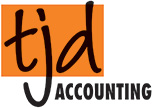Fringe Benefits Tax and Employment
Employees and Fringe Benefits Tax
 Small business owners should consider carefully fringe benefits tax and casual employees.
Small business owners should consider carefully fringe benefits tax and casual employees.
Rostering on casual labour is a fantastic way to ensure full staff coverage for important events or busy times. Each year the holiday period for businesses is a busy time, one where extra staff is crucial. Employing casual employees is a great back up to your business during those busy times and alleviates staff shortages allowing the business to continue running at full capacity.
Generally casual employees do not accrue any leave entitlements, such as paid annual or personal leave and are paid a ‘loading’ to cover this.
Casual Employees and Superannuation
It should be noted that casual employees are still entitled to be paid superannuation if earning more than $450 per month and over 18 years of age.
Another worthy note is around family members and how they are often neglected when it comes to wages, particularly young adults who have either just left school to work in the family business or have returned to the family business from other employment to help out.
In many situations family are not paid standard wages for their efforts as there is often an assumption that the person will inherit the business if he or she stays on. Unfortunately this potentially causes conflict amongst siblings when succession of ownership needs to be addressed down the track.
Fringe benefits tax payable
Employees full time or part time come with tax, superannuation, workers compensation and in some instances fringe benefit tax (FBT) requirements.
Family members or general employees that receive benefits from the company such as car or car parking, entertainment or a loan are subject to fringe benefits tax, go to the link above for more details.
Tax that is payable by the employer and calculated on the taxable value of the fringe benefits provided. This may be in addition to their salary or wage package of which family members are not exempt.
From the day your employee commences to the day they cease working you are responsible and this includes family members.
As a side note: If as a shareholder of a company you receive benefits that are connected with your role as a director and you are employed by the company, then FBT rules apply just the same as any other employee.
Taking home a company car, using the company to pay for products and services you use or paying a discounted rate, including picking up the expenses where your spouse, children or relatives are involved may be subject to FBT.
You may be able to argue that benefits were received as a shareholder of the company rather than a director thus stopping FBT from applying, however this triggers another set of rules taxing you personally on the value of the benefit received.
Read on further where we’ll discuss director’s loan obligations.
We’ve looked carefully at employees and the role you play as an employer, yet the role you play for yourself as a director is equally important. Let’s take a quick look at Directors Loans.
Is your directors loan overdrawn?
A director’s loan account is a record of company financials documenting transactions between the director and the company itself, separate from salaries and dividends. Borrowing money from your company requires careful consideration.
An overdrawn director’s loan account or debit loan account is where money borrowed from the company exceeds funds loaned to the company. At this point you are deemed to be benefitting from a directors loan and whilst unpaid will be considered a company asset.
This could create the following issues;
- Fringe benefit tax relating to interest free loans
- If the directors are also shareholders the debit loan could be subject to the Div 7a legislation and deem the loan account to be a dividend which would be taxed at personal tax rates.
- The loan account could also be called to be repaid to a liquidator in the event of the company being placed into liquidation.
It is important to deal with these issues and make sure the correct documentation and actions are taken to prevent such issues.
Running a business, juggling paperwork and employing staff is a full time obligation and employing the right staff from the very beginning is one of the best ways to ensure business success.
In order for this to happen though, both yourself and the employee must always be up to date with current government requirements, rights and responsibilities.
Contact TJD Accounting Services Pty Ltd to discuss your options.
